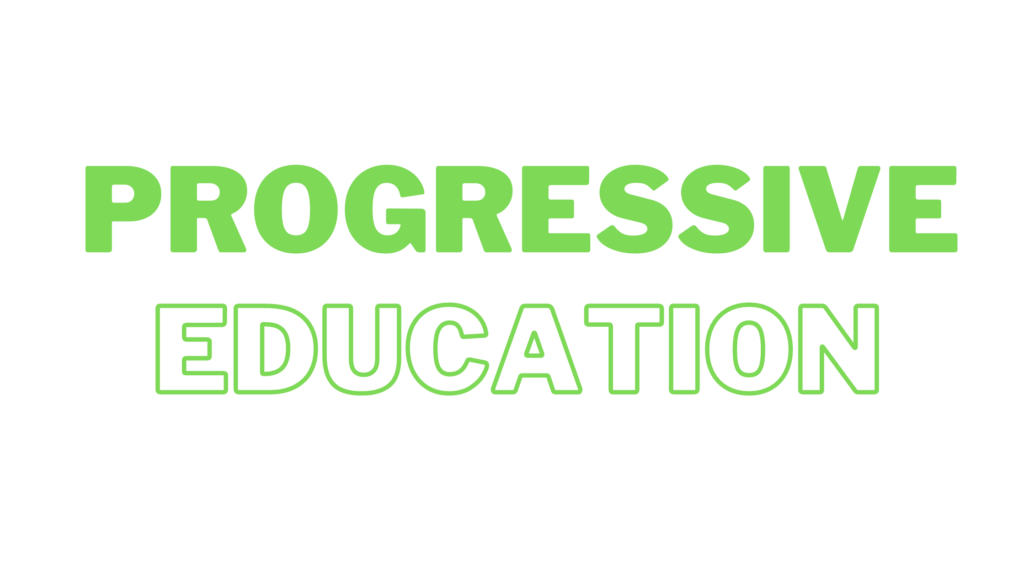Irons in the Fire, by Tom Brown

Part 2: Progressive Education
I [previously] wrote about the Montessori Landscape in the UK and what I’ve learned so far about the scene [since relocating from the US]. Inevitably, my network and understanding have continued to grow since. Here are just a couple of additions:
I have met with Dr. Nathan Archer who leads The International Montessori Research Institute, a research and training hub at Leeds Beckett University. They offer both a BA and MA in Montessori education and are pursuing some interesting research projects exploring the benefits of Montessori education in low-income environments across Europe. He kindly called me a unicorn – by nature of the fact that I have taught Montessori in elementary, middle, and public schools. As I wrote last time, it is nice to suddenly have unicorn status in the UK, but it is a little lonely too. Am I The Last Unicorn? He also invited me to present on the MA course about Montessori at the adolescent level. I have a lot of small projects like this in the works now – lots of little jigsaw pieces.
I also met with the leadership at The Montessori Partnership, a teacher training center that has been operating out of Edinburgh since 1997. The executive director, Helen Prochazka, is a Montessori legend, and I greatly enjoyed hearing her stories about the ebbs and flows of UK Montessori education over the years. I’m going to prepare some articles and webinars for them too. Right now I have three webinars scheduled with them on Mindfulness, ABAR Education, and “Loving the Unloveable Child”. I’m especially excited about all the writing projects. I would love to make writing a central pillar of my work. I’m also now officially a Public Montessori in Action International Fellow, and am going to start a project with them reading and writing about Elizabeth Slade’s book Montessori in Action: Building Resilient Montessori Schools.
I wonder if it will be possible to piece together a livelihood from all these small Montessori projects. In the US, I know this is possible because there are plenty of Montessori consultants and presenters making a living outside of the classroom. I just don’t know if the same level of opportunity exists here in the UK. Because of that, I am also considering what it would look like to consult outside of Montessori education – supporting homeschoolers, other progressive schools, independent schools, and/or public schools.
Progressive Education in the UK
Montessori is not the only game in town. Over the last month and a half, I have also been exploring other education projects, and scoping out opportunities outside of Montessori. I have talked to several consultants working both inside and outside of education over the two months, and the flexibility and creativity of self-employment appeals to me after a decade in the classroom. Also, there is no public Montessori in the UK. I feel passionately that we should be looking to make education better for all children, and, unfortunately, Montessori in the UK is only for those who can afford it.
Training and teaching as a Montessori guide has helped me develop into an expert in a wide range of “progressive” and “student-centered” teaching methods, which are, of course, all the rage right now in both traditional and alternative settings. Montessori education has always been ahead of the curve, and so that means I have a lot of expertise to bring to education outside of our community. I am starting to shape a consulting business for myself as a “student-centered”, “progressive” educator under the business title Marigold Education. I am inspired by other educators who are already doing this work, like Holistic Learning and The Garden.
In regards to state education in the UK, I still have a lot to learn. I talked to a director at TeachFirst and a local educational leader about consulting with state schools on implementing progressive education methods, such as enquiry-based learning, project-based learning, student-directed learning, etc. They were encouraging, but it seems like it will take a long time to develop those relationships and contacts. In the UK, the education system has become more traditional and single-minded under the Conservative government. Ofsted, the regulatory body, is incredibly strict, and the focus for older students is on meeting national standards and preparation for high-stakes standardized tests at 16 & 18 (GCSEs and A-Levels).
However, there are also moves within state education that are Montessori-adjacent, such as the Forest School movement. The UK school system also has moved towards creating more Free Schools and Academies, which are government-funded but have room for creativity in how they implement education. This is not dissimilar from Charter and Magnet schools in the US, which have allowed Public Montessori to get a foothold. The idea is to build “school choice” into the state system so that parents don’t seek it elsewhere, and it also opens up opportunities for school reform. Individual academies are also often organized into Academy Trusts, which means they have a centralized administration and shared resources. This creates a number of opportunities for individuals to support systems of schools in developing curricula and implementing new methodologies. Getting a contract with an Academy Trust would give me the stability I’d need to continue my other work within the Montessori community.
The nature of a state-run education system, one that is heavily oriented towards teacher-text-centered learning, national standards, examinations, and strict regulation, is that some children get left behind. There seems to be a growing disenchantment with the current state of education in the UK, especially since the Pandemic which decimated schools and changed many parents’ views and values about holistic education. Also, I’ve been learning about the rise of “school refusal” and “school exclusion” rates in the UK, both of which are a good bellwether for whether an educational system is healthy or not. “School refusal” or EBSA (Emotionally Based School Avoidance) refers to children who are unable to attend school due to anxiety or other issues. The fact that “refusal” is even being used as a term I think speaks volumes about the educational culture here. Teenagers are especially struggling, and they are historically treated with less sympathy than younger children.
Progressive Models for Education
This rising disenchantment with traditional schools has led to a growth of parents seeking out alternative schools or homeschooling. One invaluable resource I have discovered in the UK is Progressive Education, a website and Facebook group that supports the growth of alternative education in the UK. The website includes a database of “progressive” education options across the country, from Montessori schools to homeschooling groups. I have also attended some workshops run by Progressive Education, including one by Lucy Stephens, Director of The New School in London. This was incredibly inspiring, and I encourage you to look up this school and the work it is doing.
The New School is a democratic, non-fee-paying school in Crystal Palace, London. There are several democratic schools across the UK. To try and explain democratic schooling, here is a description from The New School website:
Our democratic decision-making process uses the principles of sociocracy. It is a central part of The New School and designed so that young people can experience democratic participation in a meaningful way. The circle system is used as a form of governance for staff, but also young people participate in circles to discuss issues, share ideas and make decisions about school life. Circles also take place in each class at the beginning and end of every day, and are a place for young people to challenge, raise concerns, address problems and expect that they will be heard. It is a mechanism by which young people can tackle challenges with staff and to develop inclusive and emotionally intelligent relationships. Everyone participating has an equal vote and right to speak regardless of their age or job title.
In this way, everything from school governance to classroom management and curriculum is agreed upon through a democratic process. A lot of the other aspects of the school seem similar to Montessori education, including mixed age groupings and student-led learning. What most appeals to me about The New School model is that:
- It is non-fee-paying, and so can serve an economically and culturally diverse community. It still operates as an independent school, and so currently relies on philanthropy to exist.
- It is rooted in research and has a partnership with University College London to actively research the success of the school as an alternative model.
A similar school that I have visited is The Lumiar School, which is located close to me in Trowbridge. The Lumiar School is based on an educational model developed in Brazil 15 years ago. It is bonkers that the only Lumiar school outside of Brazil is on my doorstep. Located in a beautiful old barn on a working farm, surrounded by piglets, rolling hills, sheep, and muddy fields, the Lumiar environment is incredible inside and out. Inside, mixed groups of children are working independently, spread out across the barn, engaged in various creative projects, babbling in a beautiful chaos of creativity. Again, the model is very similar to Montessori, as you can tell from their principles and values. Most excitingly, they are in the process of establishing an adolescent program – I’m hoping the timing lines up and I can help establish the first Lumiar senior school in the UK!
There are a number of other models across the UK that you can discover through Progressive Education. In a future post, I want to dig into Self-Managed Learning, which is another educational philosophy I am just beginning to learn about. Outside of established schools, there are also many homeschooling and micro-school models. Facebook is the hub for a lot of these home educator groups. Most home educators piece together a curriculum for their children from several different sources, and often enroll their children in part-time education: micro-schools such as The Garden, The Griffin Club, Oak Tree Montessori, and The Forge. Under British law, you can establish a micro-school that only operates for 18 hours, and so is not subject to the same regulations as 5-day-a-week schools. They exist as tutoring centers, so homeschooling parents are still ultimately responsible for their own children’s learning. I have engaged with a number of these groups, and a consistent thread has been that there is a distinct lack of options for teenagers. I’ve considered setting up a Montessori micro-school for adolescents in my local area.
Phew, that’s a lot. I’ve only scraped the surface here of progressive education in the UK. There is so much that I am just beginning to learn. I, for one, find it inspiring, and hope I can bring some value to this community in the future.
This is a follow-up to an article Tom Brown previously wrote about the work he’s been doing in the UK and what he’s learned about the Montessori landscape here, since relocating from the US.
About the Author

Tom Brown is a 10+ year AMI Primary and Adolescent guide with an M.Ed. in Montessori Education. He has worked in both public and private Montessori environments in the US and UK. He is currently working as an educational consultant and writer under the name Marigold Education and has supported the growth and development of several Montessori schools and organizations. Tom is also now a member of the board at AMI UK (UK Montessori Society).
You can read more of his writing here and connect with him here.

